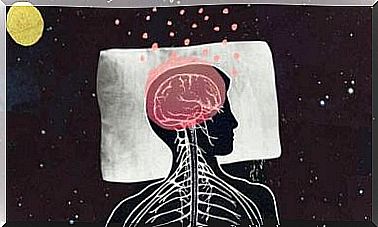In The Face Of Oppression, Do Not Resort To Violence

We understand oppression as one group oppressing another group, imposed by an asymmetric force and often reinforced by hostile conditions, such as threats or actual violence. Oppressed groups experience threats and attacks from a stronger group. Oppression means feeling humiliated and offended and feeling that you have fewer opportunities and that the laws are not the same for everyone.
But is being oppressed a valid reason to trigger violence? At first, specialists believed that repression was the cause of violence. This idea finds its roots in the frustration-aggression and relative lack of hypotheses. These hypotheses suggest that oppression, frustration, and humiliation are some of the variables that trigger violence.
The frustration-aggression hypothesis
One of the first theories that specialists used to explain where the violence came from was the frustration-aggression hypothesis. This theory stated that aggression was the result of frustration. However, reality never confirmed this theory.

Data indicated that frustration did not inevitably lead to aggression. Frustrated people were not allowed to use violence. Sometimes frustration has caused people to actually solve problems, and in other cases, violence occurred in the absence of frustration.
Therefore, it is not reasonable to consider frustration as a necessary and sufficient factor to cause aggression. Psychologists and social scientists reformulated the hypothesis so that only aversive frustration under threat would lead to aggression. In this way, frustration can favor anger and hatred. In turn, these emotional states would be the ones that would provoke aggression in the face of a threat.
However, this new proposal is not always true. Frustration in the face of a threat can facilitate aggression, but it does not determine aggressive behavior.
Relative deprivation
In the face of the error in the frustration-aggression hypothesis, a new theory emerged. The theory of relative deprivation states that frustration is caused by relative deprivation. Relative deprivation is a distorted perception of need. It is the belief that we are deprived of a need or right. According to this theory, rebellion occurs when people cannot endure the uneven conditions in which their group lives.
Relative deprivation facilities violence, especially among members of a social class or an oppressed group. But this does not make it a factor that triggers violence every time. Although poverty and economic inequality can lead to violence, it will not do so every time, not even in most cases.

Perceived oppression
Perceived oppression alone is not enough to cause violence. Nevertheless, it is a cognitive-emotional variable that constitutes a potential risk factor. Oppression does not have to be real, it just has to be perceived. Believing that another group is threatening us may be enough to make us feel oppressed. The term repression includes previous theories, and therefore it contains negative emotions such as frustration and cognitive experiences such as deprivation.
Although oppression is not necessarily part of the group of factors that end up triggering violent behavior, it is associated with some clinical symptoms such as anxiety or depression. In addition , people who feel oppressed tend to develop more emotional stress.









